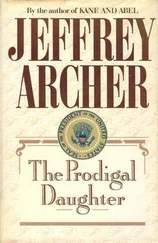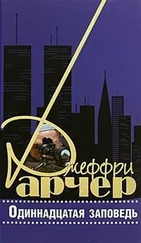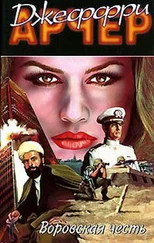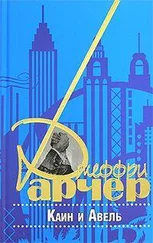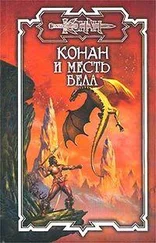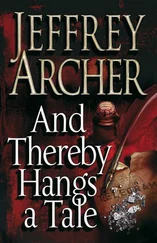For the next hour, Harry lay very still, eyes closed, while he went over the first chapter yet again. Although he’d been thinking about the plot for more than a year, he knew that once the pen began to move across the page, the story could unfold in a way he wouldn’t have predicted only a few hours before.
He’d already considered and dismissed several opening lines, and he thought he’d finally settled on one, but that could easily be changed in a later draft. If he hoped to capture the readers’ imagination and transport them into another world, he knew he had to grab their attention with the opening paragraph, and certainly by the end of the first page.
Harry had devoured biographies of other authors to find out how they went about their craft, and the only thing they all seemed to have in common was that there is no substitute for hard work. Some mapped out their entire plot even before they picked up a pen or began to tap away on a typewriter. Others, after completing the first chapter, would then make a detailed outline of the rest of the book. Harry always thought himself lucky if he knew the first paragraph, let alone the first chapter, because when he picked up his pen at six o’clock each morning, he had no idea where it would lead him, which was why the Irish said he wasn’t a writer, but a seannachie.
One thing that would have to be decided before setting out on his latest journey, was the names of the main characters. Harry already knew the book would open in the kitchen of a small house in the back streets of Kiev, where a young boy, aged fifteen, perhaps sixteen, was celebrating his birthday with his parents. The boy must have a name that could be abbreviated, so that when readers were following the two parallel stories, the name alone would immediately tell them if they were in New York or London. Harry had considered Joseph/Joe — too associated with an evil dictator; Maxim/Max — only if he was going to be a general; Nicholai/Nick — too royal, and had finally settled on Alexander/Sasha.
The family’s name needed to be easy to read, so readers didn’t spend half their time trying to remember who was who, a problem Harry had found when tackling War and Peace , even though he’d read it in Russian. He’d considered Kravec, Dzyuba, Belenski, but settled on Karpenko.
Because the father would be brutally murdered by the secret police in the opening chapter, the mother’s name was more important. It needed to be feminine, but strong enough for you to believe she could bring up a child on her own, despite the odds being stacked against her. After all, she was destined to shape the character of the book’s hero. Harry chose Dimitri for the father’s name, and Elena for the mother — dignified but capable. He then returned to thinking about the opening line.
At 5.40 a.m., he threw back the duvet, swung his legs out of bed and placed his feet firmly on the carpet. He then uttered the words he said out loud every morning before he set off for the library. ‘Please let me do it again.’ He was painfully aware that storytelling was a gift that should not be taken for granted. He prayed that like his hero, Dickens, he would die in mid-sentence.
He padded across to the bathroom, discarded his pyjamas, took a cold shower, then dressed in a T-shirt, tracksuit bottoms, tennis socks and a Bristol Grammar School 2nd XI sweater. He always laid out his clothes on a chair before going to bed, and always put them on in the same order.
Harry finally put on a pair of well-worn leather slippers, left the bedroom and headed downstairs, muttering to himself, ‘Slowly and concentrate, slowly and concentrate.’ When he entered the library he walked across to a large oak partner’s desk situated in a bay window overlooking the lawn. He sat down in an upright, red buttoned-back leather chair and checked the carriage clock on the desk in front of him. He never began writing before five minutes to six.
Glancing to his right he saw a clutch of framed photographs of Emma playing squash, Sebastian and Samantha on holiday in Amsterdam, Jake attempting to score a goal, and Lucy, the latest member of the family, in her mother’s arms, reminding him that he was now a great-grandfather. On the other side of the desk were seven rollerball pens that would be replaced in a week’s time. In front of him a 32-lined A4 pad that he hoped would be filled with 2,500 to 3,000 words by the end of the day, meaning the first draft of the first chapter had been completed.
He removed the top from his pen, placed it on the desk beside him, stared down at a blank sheet of paper and began to write.
She had been waiting for over an hour, and no one had spoken to her.
Emma followed a routine every bit as disciplined and demanding as her husband’s, even if it was completely different. Not least because she wasn’t her own mistress. When Margaret Thatcher had won a second term, she had promoted Emma to minister of state at the Department of Health, in acknowledgement of the contribution she had made during her first term of office.
Like Harry, Emma often recalled Maisie’s words, that she should strive to be remembered for something more than just being the first woman chairman of a public company. She hadn’t realized when she accepted that challenge that it would pit her against her own brother, whom Neil Kinnock had shrewdly selected to shadow her. It didn’t help when even the Daily Telegraph referred to Giles as one of the most formidable politicians of the day, and possibly the finest orator in either House.
If she was going to defeat him on the floor of the House, she accepted that it would not be with some witty repartee or a memorable turn of phrase. She would have to rely on blunter instruments: complete command of her brief, and a grasp of detail that would convince her fellow peers to follow her into the Contents lobby when the House divided.
Emma’s morning routine also began at six o’clock, and by seven she was at her desk in Alexander Fleming House, signing letters that had been prepared the day before by a senior civil servant. The difference between her and many of her parliamentary colleagues was that she read every single letter, and didn’t hesitate to add emendations if she disagreed with the proposed script or felt a crucial point had been overlooked.
Around eight a.m., Pauline Perry, her principal private secretary, would arrive to brief Emma on the day ahead; a speech she would be making at the Royal College of Surgeons that evening needed the odd tweak here and there before it could be released to the press.
At 8.55 a.m., she would walk down the corridor and join the Secretary of State for the daily ‘prayer meeting’, along with all the other ministers in the department. They would spend an hour discussing government policy to make sure they were all singing from the same hymn sheet. A casual remark picked up by an alert journalist could all too easily end up as a front-page story in a national newspaper the following day.
Emma was still mercilessly teased about the headline, MINISTER SUPPORTS BROTHELS, when she’d said in an unguarded moment, ‘I have every sympathy with the plight of women who are forced into prostitution.’ She hadn’t changed her mind, but had since learnt to express her views more cautiously.
The main topic for discussion that morning was the proposed bill on the future of the NHS, and the role each one of them would play in seeing any legislation through both Houses. The Secretary of State would present the bill in the Lower House, while Emma would lead for the government in the Upper House. She knew this would be her biggest challenge to date, not least because her brother would, to quote him, be lying in wait.
At eleven a.m., she was driven across Westminster Bridge to the Cabinet Office to attend a meeting to consider the financial implications for the government of keeping to pledges the party had made in the last election manifesto. Some of her colleagues would have to make sacrifices when it came to their pet projects, and each minister knew that just promising to cut costs in their department by being more efficient wouldn’t suffice. The public had heard the paperclips solution once too often.
Читать дальше

